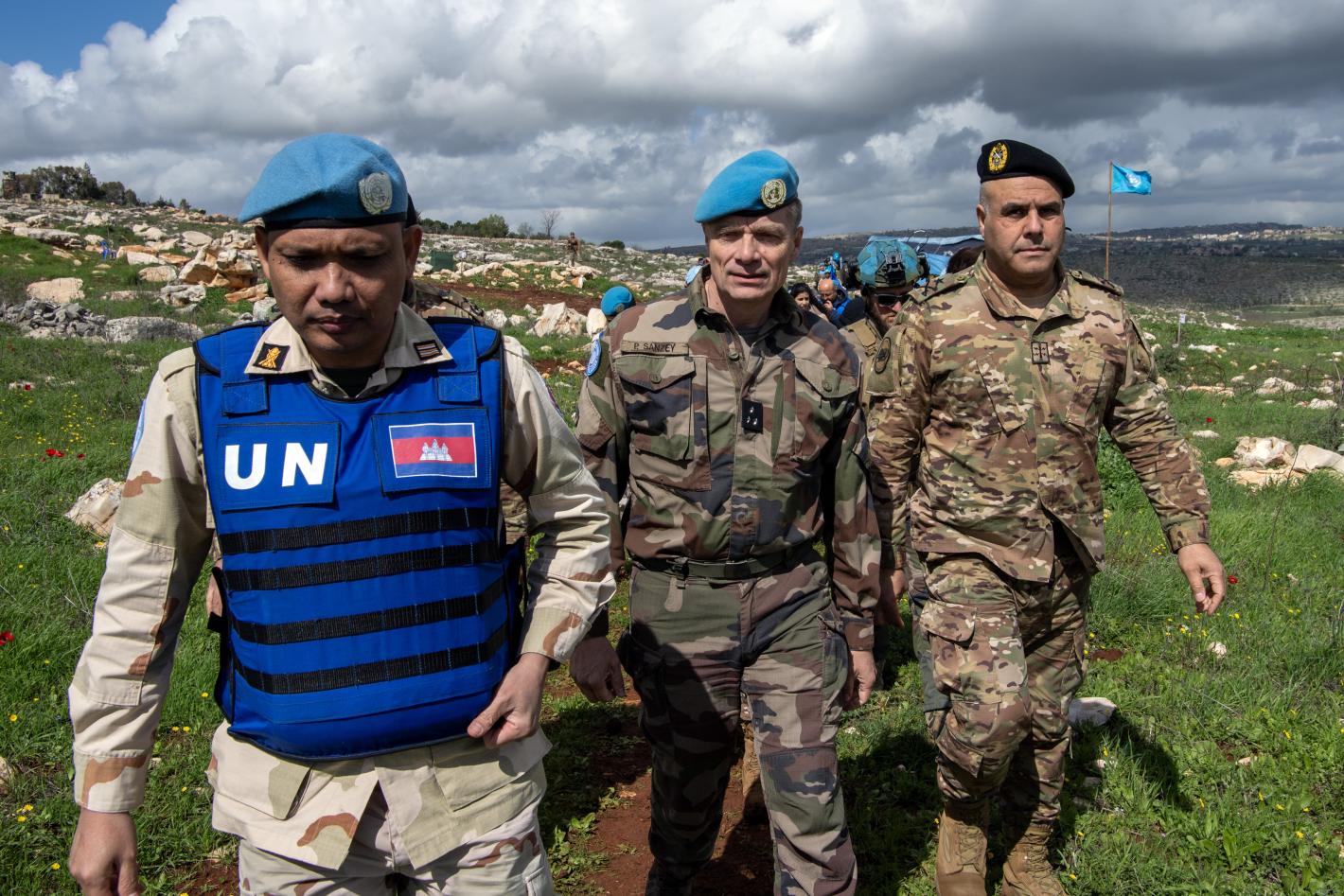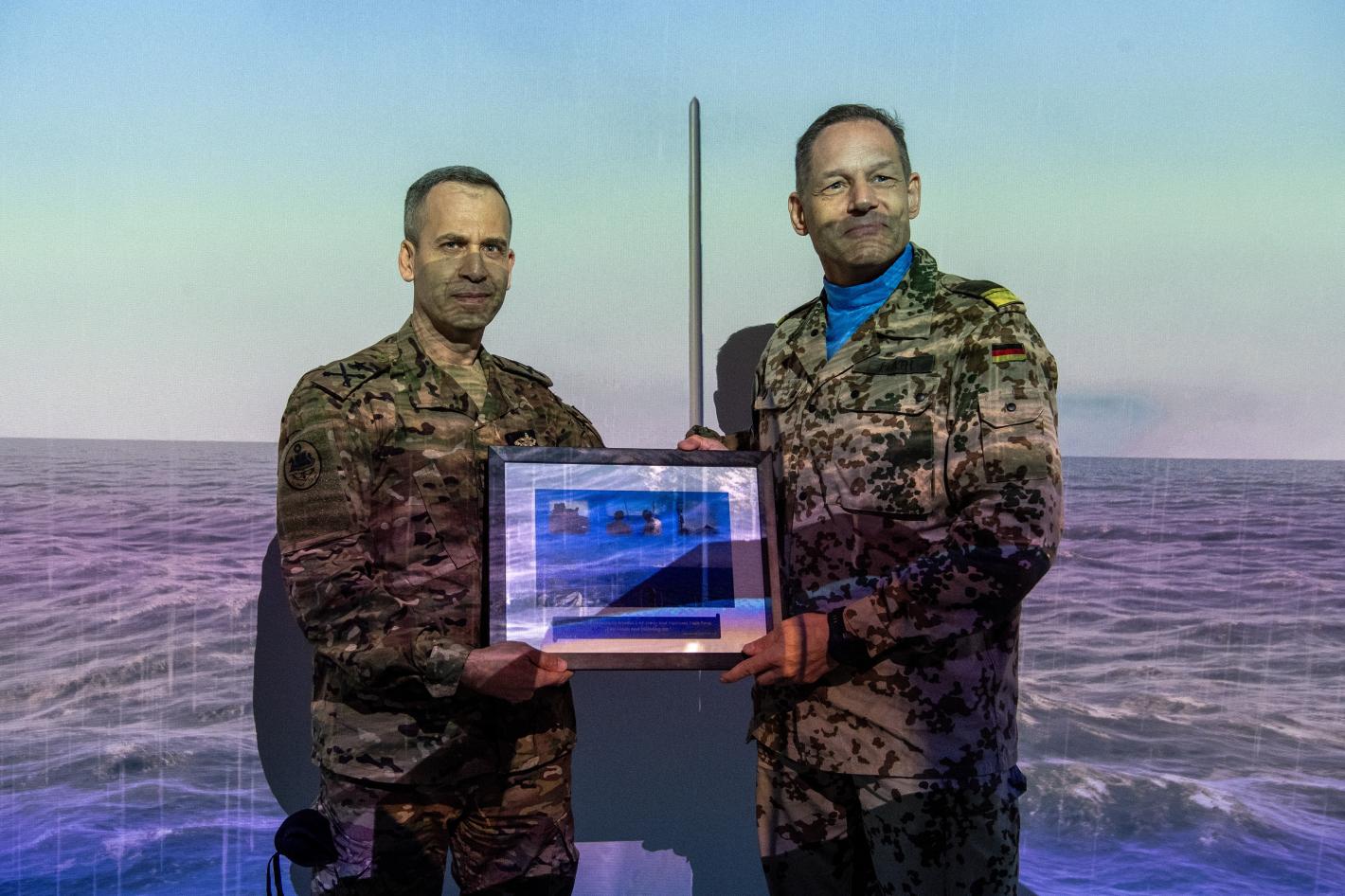In the wake of the dramatic escalation of violence across the Blue Line in late September, which has posed enormous challenges to UNIFIL peacekeepers as well as the local population, peacekeepers have persevered and remain in their positions spread across south Lebanon.
Peacekeepers have themselves been targeted more than a half dozen times as they continue to monitor and report on the situation on the ground. Despite this, they have ramped up – to the extent possible – various support initiatives for the local civilian populations as well as the internally-displaced persons (IDPs).
From rehabilitation of damaged roads to providing medical and other essential support, peacekeepers have been doing everything they can to help those who have continued to stay in their homes, as well as those displaced by conflict.
Between 23 September (when the dramatic escalation began) and 31 October, UNIFIL’s liaison branch facilitated over 1,800 activities related to protection of Lebanese civilians, including journalists and rescue workers, as well as to the Lebanese Armed Forces and UNIFIL assets.
UNIFIL’s Chief Liaison Officer, Col. Olivier Waché, says while Liaison Branch is at the centre of the communication between the parties, the challenge of managing expectations is high.
“Due to the ongoing IDF (Israel Defense Forces) operations in Lebanon, the Liaison Branch has had to adapt to the new situation and while we keep both parties informed, the level of interaction with the IDF has significantly increased in order to deconflict UNIFIL movements and for the evacuation of civilians from certain areas,” he says.
“As such, Liaison Branch’s focus has shifted from the Blue Line to the entire area of operations,” he adds. “The new security environment has posed a very stressful environment for our personnel. We know that every information exchanged can contribute to save lives and help understand the situation for all the parties. Any delay or mistake in this transmission of information could have dramatic effects.”
The following are some of the support initiatives undertaken by UNIFIL peacekeepers in recent weeks
- Protection of civilians
From facilitating humanitarian access more than 600 times to evacuation of civilians under imminent threat of violence, UNIFIL peacekeepers have worked with local emergency rescue workers as well as international humanitarian actors in ensuring the safety and occasionally even evacuation of civilians.
As the violence intensified, on 22 October, Ghanaian peacekeepers moved two elderly sisters living in the village of Al Qawzah to Rmeich. Earlier that week, following request from the Lebanese Armed Forces (LAF) to facilitate “urgent evacuation” of civilians in the Houla area, Nepalese peacekeepers moved three civilians, two elderly men and a woman, to safety.
Similarly, on 11 October, Spanish peacekeepers delivered two sets of donations to the villages of Kleyaa and Ible l-Saqi. While the donation in Kleyaa included personal hygiene kits, wood stoves, medicines and clothes, the local dispensary in Ebel el-Saqi received personal hygiene kits for distribution among village residents.
On 30 September, following requests from village authorities of Kawkaba and Abu Qamah, Indian peacekeepers provided 50 mattresses and 50 blankets to the IDPs from Kfar Shouba, Halta, Kfar Kila, Shab’a and Dibbin.
In addition, since 23 September, dozens of civilians under imminent threat of violence have sheltered in UNIFIL positions.
- Road rehabilitation and clearances
As airstrikes have damaged several roads across the mission’s area of operations, including some being blocked by debris and rubble, UNIFIL peacekeepers have cleared many of them while rehabilitating those rendered unusable.
On 29 October, Nepalese peacekeepers cleared the road between Meiss el Jabal and Tebnine that was blocked by debris from recent bombardments in Shaqra.
On 25 October, a team of sappers from the Spanish contingent, supported by fellow peacekeepers from India, rehabilitated a section of the road connecting the villages of Kfar Shouba and Kfar Hamman. The road, which is close to one of UNIFIL’s Indian positions, is regularly used by peacekeepers.
Although the crater on the road was larger than initially thought, the task was completed within a few hours. The final result was a functional road that will once again allow movements of UNIFIL peacekeepers as well as civilians in the area, which – like many others in south Lebanon – is heavily impacted by the ongoing violence.
In the previous week, from 16 to 18 October, French peacekeepers worked with their Nepalese counterparts in clearing a road in Meiss el-Jabal that allowed delivery of essential supplies to a nearby Nepalese post.
- Medical and hospital support
As the vast majority of the people living in the UNIFIL area of operations have fled to safety, essential public services are almost non-existent – that especially after the surge in violence late September.
UNIFIL peacekeepers have stepped in to provide some of these essential services to the people still living in the south, including IDPs.
On 31 October, the mission’s Sector East Commander Brigadier General Garcia Del Barrio handed over free medical packages to a local charity in the village of Kleyaa, which will be distributed to both locals and IDPs.
On 29 October, the Italian contingent delivered much-needed medical devices and medicines to the Municipality of Tyre. The medical supplies will help those forced to flee their homes due to ongoing exchanges of fire across the Blue Line and who are now sheltering in Tyre.
On 25 October, Indonesian peacekeepers organized a free health camp in one of its bases, in the village of Adchit Alqusayr, treating and providing free medicines to local beneficiaries.
On 21 October, Malaysian peacekeepers delivered water to the Tebnine Governmental Hospital and the Lebanese Red Cross’s medevac centre, both facing severe shortages since September.
On 30 September, two civilians injured by an airstrike in the village of Ibl el-Saqi received medical treatment in the nearby base of Indian peacekeepers.
- Clearing UXOs
As the clashes intensify, some of the south Lebanese villages are already littered with deadly unexploded ordnances (UXOs). On 14 October, an explosive ordnance disposal team from UNIFIL’s Chinese contingent cleared the village of Al Hinniyeh of UXOs, following heavy bombardment of the area, where their position is located. The same team undertook a similar mission in the mission headquarters in Naqoura the following day. This helps ensure the safety of peacekeepers in carrying out their work and of any civilians who remain in their homes or may someday return.






